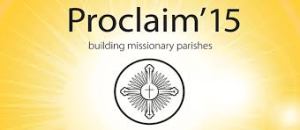I’m a member of the Unite union. Recently I received an email from them, signed by Len McCluskey, saying:
 “It’s important for me to hear the views of our members, including on our political direction. As you may know Unite is affiliated to the Labour Party and we will be calling to let you know how you can become more involved in the Party”
“It’s important for me to hear the views of our members, including on our political direction. As you may know Unite is affiliated to the Labour Party and we will be calling to let you know how you can become more involved in the Party”
Here’s my reply.
You want to know the views of your members, including views on the political direction of Unite, and you’d like to let me know let you know how I can become more involved in the Labour Party.
You know what, Len? I’m not involved in the Labour party for a reason. I’m not involved in any party, as a matter of fact – though I was once – and in every case it’s for the same reason.
They don’t care about people, as people. They’ve sold out to the view of humanity as seen by a theoretical economist – they see people as units of producton and/or consumption. All that matters is economic growth, balancing the budgets, how many billions are spent on this or that.
Listen to the way words are used. It only takes a few examples.
Childcare doesn’t mean caring for children – it means paying money to have them cared for by someone else, so that the mother can be an economically productive unit again as quickly as possible after (inconveniently for the employer) taking a break to produce a child.
Education doesn’t mean educating the whole person – it’s about training a workforce; meeting arbitrary targets to make people fit the model an employer will want.
Work doesn’t mean the fulfillment of a basic human urge to create: it means a tick on the ’employment’ box, and for many people a state not far removed from slavery, since they haven’t much choice about their work, and they need every penny of their meagre wages to live, so they can’t exercise any real freedom to walk away. The idea of creative, fulfilling work which will support a family is a vanishing dream.
And what is produced, much of the time, is either in the fantasy world of invisible products, or is low-quality, immediately obsolescent stuff which will need replacing soon, to keep the money going round.
No, that’s not the sort of politics I want – and nor is it the sort of politics very many people want. We’re tired of the wordplay and the manipulation. We’re fed up with being financial playthings: consumers instead of citizens.
If you can turn the Labour Party into a party which re-develops a real care for human dignity; which protects human life from conception to natural death; which allows us to work, paid or unpaid, in creative and satisfying ways; which sees a real value in the natural family which is the true basis of society, and supports it without mealy-mouthed reservation; which can reflect and strengthen the social values of our British history, and which will refrain from selling our souls – well, then you’ll have a winning formula, and I’ll be in.
But right now, the Labour Party just doesn’t cut it. Yes, it’s got some good policies; good enough for me to have voted for it in May. ( I did consider the Greens, but there is some really nasty authoritarianism just under the surface there). But as yet, Labour doesn’t really stand for true human dignity; it accepts far too much of the vacuous drift towards individualism, consumerism and materialism. It sees the true value of human life, love and society as an optional extra; mildly embarrasing and awkward aspects of the economic commodity called people.
If the Union’s direction is towards the current sort of Labour Party – still basically Blairite, impersonal, materialist, supporting killing the unborn and leaning towards killing the infirm – then it’s the wrong direction.
If the Union’s direction is towards a genuine respect for human life and its innate dignity, for the value of work as the outpouring of human creativity, for the common good across all people, regardless of age, sex or economic output, recognising that people differ and have different needs, talents and roles in a truly healthy society, then it’s on the right lines. I wish I could say the published policies and the campaigns Unite has supported gave me any indication that this direction was a reality.







